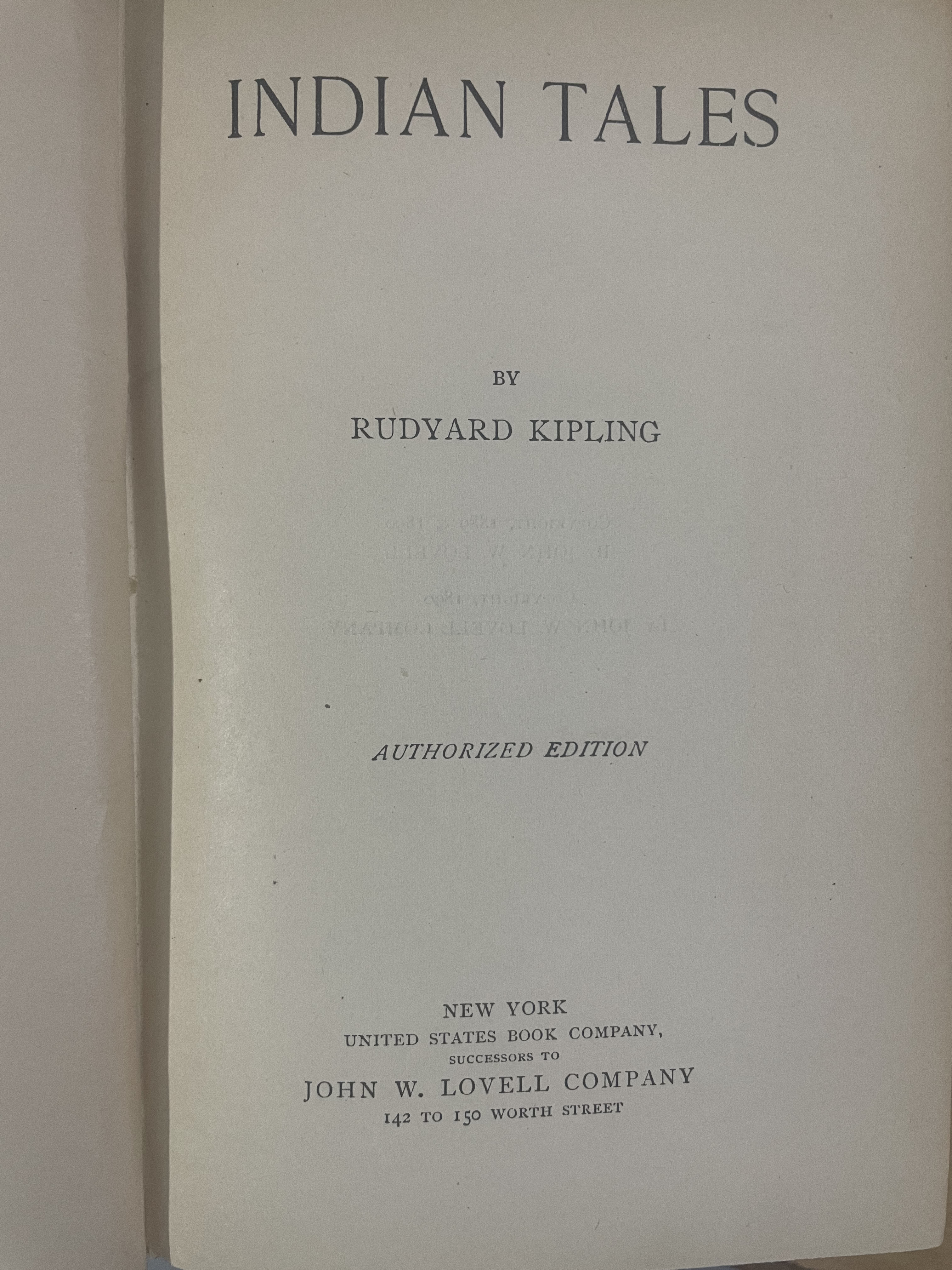Indian Tales

About
Summary
Exquisite
TOC
Details
Related
URL
Images
Overview
Indian Tales by Rudyard Kipling is a collection of short stories set in colonial India during the late 19th century. Kipling, who spent a significant part of his early life in India, draws upon his experiences to depict the complex interactions between British colonizers and the Indian population. The tales explore various themes, including adventure, morality, cultural clashes, and the mystical allure of India.
Importance of Book
Historical Depiction: The stories provide a valuable glimpse into the social, cultural, and political landscape of colonial India. They capture the atmosphere of the time and offer insights into the lives of both the colonizers and the colonized.
Exploration of Colonialism: Kipling's work explores the complexities and contradictions of colonialism, raising questions about power, identity, and cultural exchange.
Literary Merit: Kipling was a skilled storyteller, and his "Indian Tales are engaging and well-crafted narratives that have stood the test of time.
Influence on Western Perceptions of India: Kipling's stories played a significant role in shaping Western perceptions of India, contributing to both fascination and stereotypes.
Key Themes
Colonial Encounters: The stories frequently portray the interactions between the British and the Indians, highlighting the cultural differences, misunderstandings, and power dynamics inherent in the colonial relationship.
Adventure and Exploration: Many tales involve adventurous journeys through the Indian landscape, reflecting the sense of exploration and discovery that characterized the colonial experience.
Morality and Duty: Kipling often explores themes of morality, duty, and the responsibilities of individuals within the colonial context. This includes examining the ethical dilemmas faced by British officials and soldiers serving in India.
Cultural Identity: The stories delve into the complexities of cultural identity, particularly for those caught between two worlds. This includes both the British characters trying to adapt to India and the Indians navigating the impact of British culture on their own traditions.
Mysticism and the Supernatural: Kipling incorporates elements of Indian mythology, folklore, and mysticism into his stories, adding an exotic and often mysterious dimension to the narratives.
Cultural Significance
Representation of Colonial India: The stories offer a specific representation of colonial India, reflecting Kipling's own perspective and biases. While his portrayal has been praised for its vividness and detail, it has also been criticized for its romanticization of colonialism and its limited understanding of Indian culture.
Exploration of Cultural Identity: The stories contribute to a broader exploration of cultural identity in a colonial context, raising questions about the negotiation of identity for both the colonizers and the colonized.
Reflection of British Imperial Ideology: Kipling's work reflects the prevailing British imperial ideology of the late 19th century, including beliefs about the superiority of British culture and the duty to civilize other nations.
Impact on Literary Tradition: Indian Tales has had a lasting impact on the literary tradition, influencing subsequent writers and shaping the way India has been portrayed in Western literature.
Effects on Society
Shaping Western Perceptions: The stories have undoubtedly shaped Western perceptions of India, contributing to a mix of fascination, exoticism, and orientalism. They have also reinforced certain stereotypes about Indian culture and society.
Inspiring Interest in India: Kipling's vivid descriptions of India have inspired many Westerners to visit and learn more about the country.
Criticism of Colonialism: In more recent times, Kipling's work has been subject to critical analysis for its portrayal of colonialism and its potential reinforcement of racist attitudes.
Understanding Colonial History: Despite its biases, Indian Tales can be a valuable resource for understanding the social and cultural dynamics of colonial India.
Conclusion
Indian Tales by Rudyard Kipling offers a window into colonial India, exploring themes of adventure, morality, and cultural encounters. While the stories have been praised for their literary merit and historical detail, they have also been critiqued for their portrayal of colonialism and their potential reinforcement of stereotypes. Nevertheless, "Indian Tales" remains a significant work for understanding the complex relationship between Britain and India during the colonial era.
Title
Indian Tales
Author
Rudyard Kipling
Name of Publisher
United States Book CompanyNew York
Publish Date
1890
Subject
It showcases the rich and diverse folklore of India. The 1890 edition of this work is likely edited or compiled to present various traditional Indian tales to a Western audience, often with the goal o
Vintage
1801-1900
Number of Pages
770
Category
Literary
Sub Category
Fiction
Rarity
RARE
